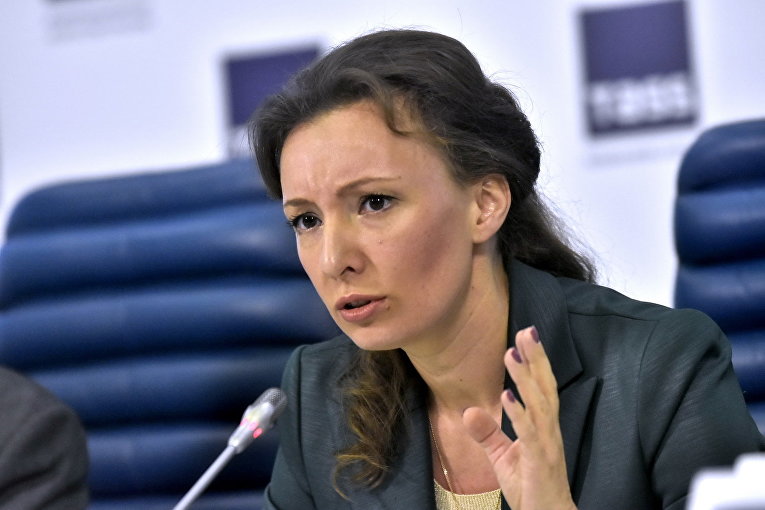MOSCOW, April 6 (RAPSI) — The Russian Commissioner of Children’s Rights Anna Kuznetsova believes that it is necessary to adopt a federal program for support of large families in Russia.
The Children Ombudsman considers two points to be fundamentally important: it is necessary to refine and support the efforts of the Federation Council to develop a federal law on large families; however, this effort should not be limited to the draft law only. In her opinion, it is necessary to adopt a comprehensive program, because the bill cannot accommodate all the systemic approaches that are already clearly making themselves felt to the society, Kuznetsova said addressing the round table “Expert discussion of measures to support large families”on Tuesday.
She noted that within the Demography national project the funds in the amount of 4.5% of the total sum allocated for the project are still available; the said money could well have been spent for financing the proposed federal program if a certain regulatory framework and respective procedures are put in place.
Kuznetsova proposed to build the program on three principles: the struggle for every born child, the struggle for the unborn child, and the struggle for the value of birth; she also said she is ready to take an active part in this program.
The Children’s Rights Commissioner is confident that today large families have huge resources as to the overcoming the demographic problem, since as of January 21 of this year, there were almost 2 million large families in Russia, and these large families bring up 6.5 million of children, what makes one fifth of the total number of minors in the country, so she could imagine the dynamics of the demographic situation in case the number of large families increases by at least one percent. Kuznetsova noted that the number of large families has been steadily growing over recent years.
Over the past three years, the number of large families has increased by 13%, and the number of children brought up in such families has increased by 10.8%, the Children Ombudsman observed noting that even amid the pandemic large families continued to show an increase in the birth rate.
However, Kuznetsova believes that the measures taken today in relation to the support of families with children are rather fragmentary for various reasons. Determination of criteria for classifying a family as a large family, assignment of measures of social support and other assistance are left at the discretion of the regional authorities, the Ombudsman noted.
In the result of such a policy, it is impossible to introduce a systematic approach to the problem, she said stressing that the lack of such an approach left about 50% of large families below the poverty line, what is an unacceptable situation.
Not denying that large families face a sufficient number of problems, among which are lesser opportunities for additional education, possible decreases in the quality of education, and other problems, Kuznetsova stressed that the key problem is that each subsequent child can put a family in less favorable financial position. Therefore, the task is to reverse these developments so the birth of each next child led to an increase in the well-being and level of provision of families in Russia, she noted.
According to Kuznetsova, the solution to the demographic problem and the problems of large families lies in three directions: firstly, the improvement of the material well-being of families with children, secondly, the increase in the prestige of the family, and thirdly, the formation of value orientations among young people.
It is important to monitor the support measures that are already in place in the regions and to strengthen such programs, the Children’s Rights Commissioner believes.
Further, it is important to give parents of large families a chance for self-realization via introducing assistance provided for free as to care about children; some projects of this kind are being successfully implemented in a number of Russia’s regions. If necessary, such programs may be transferred to the federal level of support, the Ombudsman said emphasizing that families having many children should be given a high status and prestige.
The Children Ombudsman reported to the meeting that certain successes in shaping values of young people had been achieved, in particular she cited the fact that traditional family values are taught in schools after being included in a number of textbooks.



